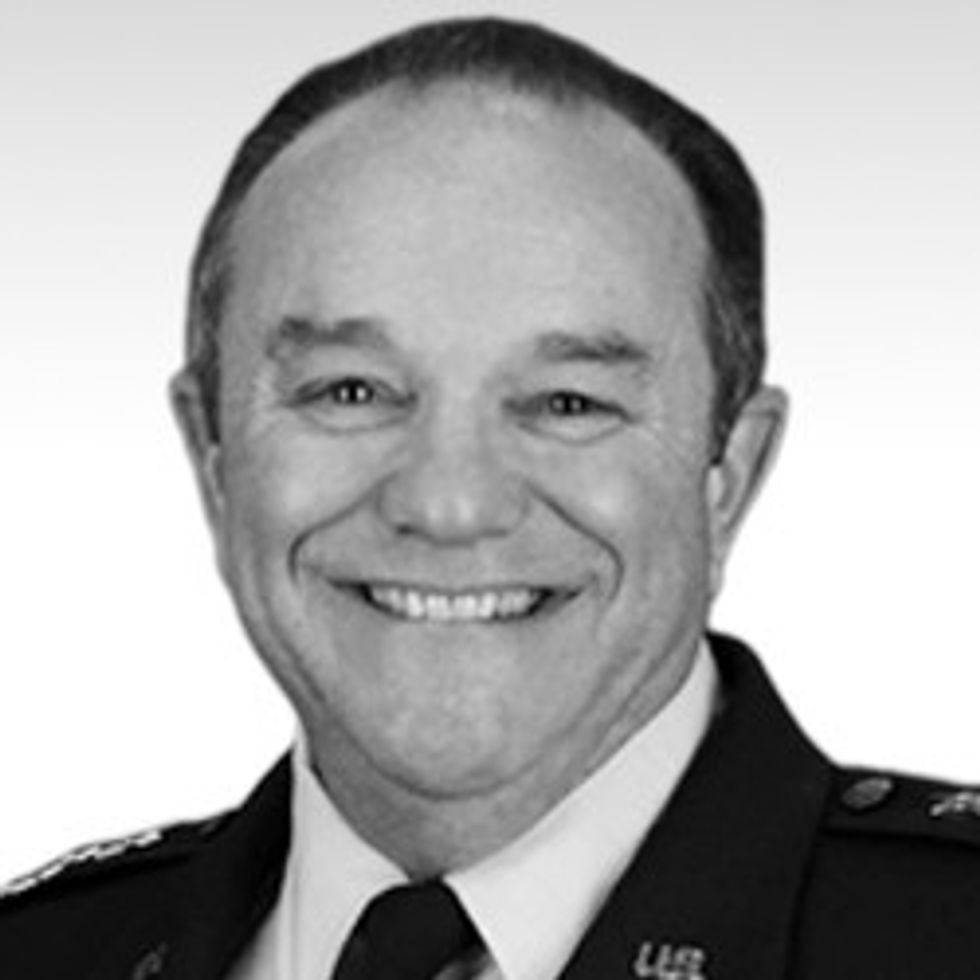Bottom Line: As NATO members prepare for an emergency session in Brussels on Thursday, Russia is continuing a brutal campaign of destruction in Ukraine. While Moscow hasn't explicitly threatened the use of chemical, biological or nuclear weapons in the country, Kremlin spokesman Dmitri Peskov refused to rule out Moscow’s potential use of nuclear weapons in an interview with CNN's Christiane Amanpour on Tuesday, saying, under conditions of an existential threat, such weapons would be authorized.
The “opportunity to coordinate on the next phase of military assistance to Ukraine,” will be one of the featured elements of the emergency summit that President Joe Biden will attend. According to National Security Advisor Jake Sullivan, a parallel U.S. effort will be to, “join our partners in imposing further sanctions on Russia and tightening the existing sanctions to crack down on evasion and to ensure robust enforcement.”
According to Sullivan, new alliance announcements, including “a joint action on enhancing European energy security and reducing Europe's dependence on Russian gas at long last,” as well as “longer term adjustments to NATO force posture on the Eastern Flank, “will also factor into the summit proceedings.
Background:
- Although a formal agenda is yet to be announced, continued Western support and security assistance to Ukraine, and the limits of NATO military involvement, will likely be key topics of discussion. Also, as Ukrainian refugees continue to surge into surrounding countries, the mounting humanitarian crisis and the steps NATO countries are willing to take to alleviate burdens are expected to figure prominently in the summit. Also mentioned as a possible agenda item is a proposal from Poland to organize an international peacekeeping mission for Ukraine.
- In announcing the “extraordinary summit,” NATO Secretary General Jens Stoltenberg said, “We will address Russia's invasion of Ukraine, our strong support for Ukraine, and further strengthening NATO's deterrence & defense. At this critical time, North America & Europe must continue to stand together."
- Sullivan also outlined the President’s visit to Poland on Friday, where Biden, “will engage with U.S. troops who are now helping to defend NATO territory, and he will meet with experts involved in the humanitarian response” to the refugee crisis and hold a bilateral meeting with Polish President Andrzej Duda.
- Sullivan also described “three lines of effort” pursued by the Administration since November, concerning Russian aggression: “First, help Ukraine defend itself by supplying weapons and military equipment. Second, impose severe and escalating economic costs on Russia through the application of unprecedented sanctions in close coordination with allies and partners in Europe, the Indo-Pacific and other parts of the world, and third, fortify NATO and the Western alliance by enhancing our force posture on the eastern flank and making our allies more resilient against other forms of Russian aggression. We've made decisive moves on all three fronts, and President Biden's trip will involve further actions on each of these three fronts.”
- Expressing “robust bipartisan support” for President Biden’s meetings with NATO leaders, the Senate NATO Observer Group offered a five-point outline of the Senate group’s key concerns in a letter to the President. Noting the growth in congressional support for NATO following the Russian invasion, the senators asked the President to convey appreciation to those countries that have pledged to increase or accelerate defense spending. They also called on NATO members “to urgently consider all options to support Ukraine.”
The Cipher Brief spoke with two of our experts, both former NATO Supreme Allied Commanders about what they will be looking for from this summit. Admiral James Stavridis (Ret.) served as the 16th Supreme Allied Commander and General Philip Breedlove (Ret.) Served as the 17th Supreme Allied Commander.
Read This is NATO’s Casablanca Moment by Former CIA Chief of Central Eurasia Division Robert Dannenberg only in The Cipher Brief
The Cipher Brief: What is your overall expectation for the NATO talks and surrounding discussions with the EU and G-7?
General Philip M. Breedlove (Ret.), Former NATO Supreme Allied Commander
I think NATO will come out with the same strong statements they've made, and I'll use our President's words, "We will defend every inch of NATO territory." I'm pretty sure NATO will come out with that again. I worry about that message because it's speaking to Putin, of course, but it's also speaking to the Ukrainians. I might have done that a little differently.
Admiral James Stavridis (Ret.), Former NATO Supreme Allied Commander
NATO is on a roll. Unity is the highest I’ve seen since the end of the Cold War. Defense Spending (notably by Germany) is rising rapidly, and all 30 nations are focused on the threat of Russia in a clear-eyed way. Look for not only statements of solidarity, but also pledges to shift NATO combat power – on land, sea and air – closer to the Russian border in a show of strength and deterrence to Putin. These actions will be coordinated with the EU, which is capably led by Ursula von der Leyen, a former German Minister of Defense whom I know well.
The Cipher Brief: Is the NATO alliance likely to reiterate warnings to Russia concerning the extension of conflict onto NATO territory or the employment by Russia of chemical/biological or tactical nuclear weapons in Ukraine?
Breedlove: There will be talk about Russia’s potential use of chemical, biological, and nuclear weapons in Ukraine, and how NATO will respond if Moscow moves forward on that. I think there will also be a focus on how Russia has started to use some of these new weapons, like hypersonic missiles, which - by the way - I think is no big deal. But they're going to talk about that as well. And they will likely also work on reaffirming the picture they present externally so that no one sees separation in the Alliance and how they're handling these issues.
Stavridis: All three entities – G7, EU and NATO – will communicate to Russia the immense danger of using chemical, biological or tactical nuclear weapons. They will probably not be explicit as to consequences, but such use would almost certainly lead to the imposition of a NATO no-fly zone over at least a portion of Ukraine plus the possible deployment of NATO troops to protect supply lines of war materials coming into Ukraine from the West. It would also lead to even more significant sanctions, potentially including full oil and gas (some nations are still buying Russian energy in Europe) and possibly secondary sanctions imposed on anyone (China or India for example) who trades with Russia. The stakes for Putin will go up considerably if he walks through the door of weapons of mass destruction.
The Cipher Brief: What about talk we've heard from some of the Baltic nations about forming a peacekeeping force to go into Ukraine? Do you think anything will come of that?
Breedlove: I doubt it because it would be hard for NATO to declare that. Now, if we received a UN mandate, that would be different. We have done peacekeeping when directed by the UN in the past, many NATO nations have. If that direction was to come from the UN, that would be a whole different manner. One of the most senior Greek ministers has announced that he's going into Ukraine with a convoy of humanitarian relief for Mariupol. The statement essentially is, "Russia, don't bother us. I'm going in with them."
The piece includes research, analysis and reporting by Cipher Brief Analyst Ken Hughes
Read more expert-driven national security insights, perspective and analysis in The Cipher Brief














